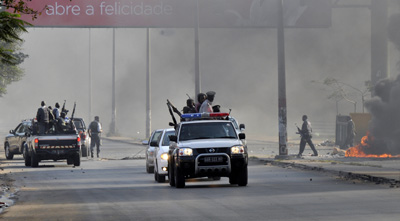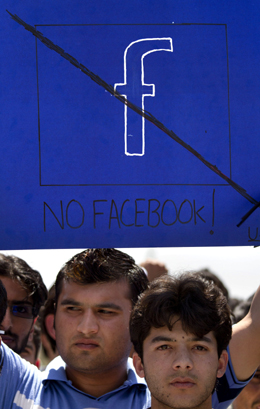Attacks on the Press 2010: Preface
by Riz Khan It’s a double-edged sword. Technology has made the life of journalists so much easier and yet so much more difficult. Even in the least-developed countries, where simple infrastructure such as paved road is a luxury, access to mobile phones, the portability of satellite broadcasting systems, the growth of delivery platforms, and the…

Journalists beaten, websites blocked amid protests in Egypt
New York, January 26, 2011–The Committee to Protect Journalists condemns the violence against journalists covering demonstrations in Egypt. Plainclothes and uniformed security personnel have beaten at least 10 journalists between Tuesday and today and detained others. Egyptian authorities have also shut down the websites of two popular independent newspapers and a number of social media…
Will Tunisia’s ‘Internet revolution’ endure?
There has been a great deal written online about how much of a positive role the Internet played in recent events in Tunisia (if you’d like to catch up, Alex Howard’s link round-up provides a good summary of the many sides, both for and against). At CPJ, our focus is on slightly different questions: How…
Protecting journalists from Firesheep
There’s been a great deal of coverage in the last day or so of Firesheep, a plugin for Firefox that lets you take over the Facebook and Twitter accounts of others on your local network. If you use Firesheep, you can pick one of the people on, say, the same open wireless at your nearby…
Asia program now on Facebook, Twitter
Until now, CPJ’s Asia program has relied largely on email blasts to get the word out when we post something new on CPJ.org. Today we launched our Facebook and Twitter pages. Like us and follow us for an inside look at the Asia program and quick, timely updates on our alerts and blogs. We also…

Abuja Twitterers chronicle #Nigeriaat50 bomb explosions
A few minutes before deadly explosions ripped through Nigeria’s 50th Independence Day celebration in Abuja on Saturday, Twitter user Achonu Stanley wondered about darkening skies over the festivities: “Would the day be marred by rain? It has become cloudy and dark. Sorry for the thousands of people at Eagle Square.”

New media tools bring Mozambican crisis to the world
This week’s deadly unrest in Mozambique became a global news story in part because reporters and citizen journalists used new media and social networking tools. Clashes between security forces and people protesting rising prices in the capital, Maputo, left at least seven people dead and more than 200 people injured, according to the latest news…
China Media Project – Microblogs are crucial in China
Hu Yong’s writes on the rise of microblogs (like Twitter, which is blocked) on the Chinese Internet. Recently, when a newspaper reporter exposed related-party transactions by a listed company, local police authorities issued a warrant for his arrest. Tens of thousands of microblog posts were sent out about this incident. Users expressed their views and…

In Pakistan, a censor’s hand in Facebook, Twitter woes?
Last week, users of Facebook and Twitter in Pakistan began reporting a strange security problem. When they visited those sites, they found they were logged in–but with the accounts and privileges of complete strangers. Private Facebook information and Twitter direct messages belonging to other users were viewable, and the surprised Pakistani users had complete control…